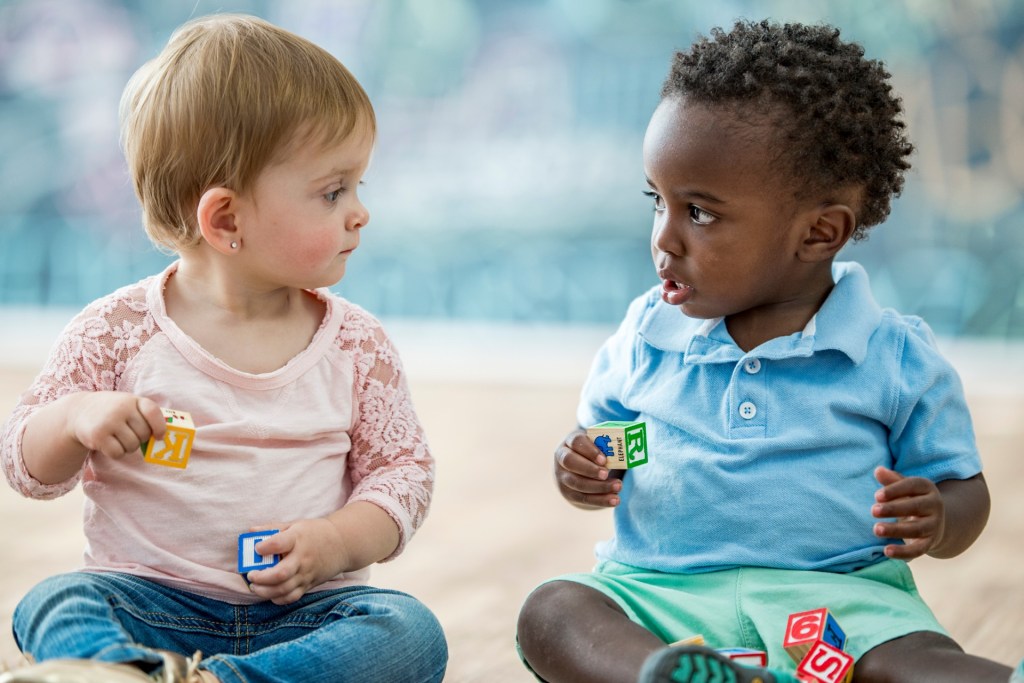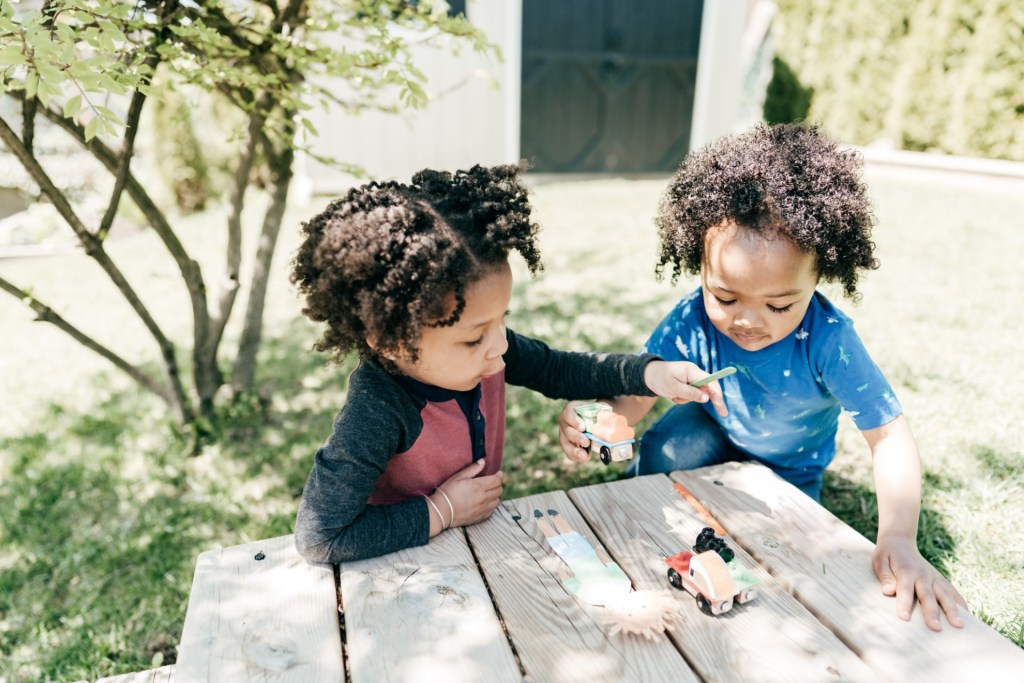Playdates aid in social growth. Scheduling one for your toddler can be the first step to helping your little one develop self-confidence. Of course, as a parent, you’re the one tasked with the scheduling — but helping your toddler find friends might not be as tricky as you thought. If you’re not sure where to start, check out our tips below.

Figure out who the playmate is
Before you can schedule the playdate, you’ve got to find a willing candidate. Depending on the age of your child and where you live, finding playmates can be challenging.
If you don’t have friends or family with children around the same age, look for parents with kids in the same class or day care. If you still can’t find anyone, you can always extend the search to co-workers or look for parents with whom you have mutual friends.
The other big factor for playdates is making sure it’s someone who cooperates with your child. For toddlers or babies, this can be hard to tell until you’re actually on the playdate, but for older kids, you can always ask whom they’d like to spend time with.
Find a fun activity
Before you ask, it’s a good idea to come up with a couple of fun activities. That way, you don’t have to try generating an idea on the spot. If you already know the parents quite well, you might not need to do much brainstorming — you may feel comfortable enough going to their house.
However, if it’s your first playdate with someone you don’t know all that well, stick to neutral ground. Avoid going to their house or having them come to yours. Instead, look for public spots like the local park or playground. Public areas take the pressure off both parents and let you see how the kids interact with each other. If everything goes well, you can schedule something indoors.
Be upfront
While figuring out activities and playmates can be challenging, asking for a playdate can feel awkward. Usually, your best bet is to just be honest, and don’t take rejections personally. Not all parents have time for playdates, or they might be strict about where they take their child.
Still, there’s no reason to be nervous. Many parents welcome playdates, especially if it’s a way to occupy their children for a couple of hours. This is also the time to be straightforward about any special accommodations your child might need. For instance, if your toddler is allergic to peanuts, that’s information another parent would need to know. Once you’ve figured out the details and established that the playdate can work, you can then begin scheduling a time.

Establish ground rules
Whether the playdate happens on your own turf or not, you’ll want to establish some ground rules. One rule might be that your child needs to share their toys, or they shouldn’t be rude to their playmate.
If the playdate is happening in your home, you might have even more ground rules to go over. For instance, only eating in the kitchen or picking up the toys once playtime is over.
Of course, you can only control whether your own child follows the rules or not. But, as long as the other parent knows what you expect, getting both kids to follow the ground rules shouldn’t be too challenging.
However, if the other parent drops their kid off and their toddler breaks the rules, there’s not much you can do besides informing the parent. Keep in mind that if you go over to someone else’s house, you’ll have to abide by their rules, regardless of how stringent they may be.
Occupy yourself
You’ll probably spend a lot of the playdate worrying about how comfortable your child is, how they’re behaving, or if they need anything. But, once you’ve got those concerns out of the way, you’ll need to find a way to occupy yourself for a couple of hours.
If the other parent is there, you can always get to know each other — just make sure you stay within eyesight of the kids.
Or, if their child is getting dropped off at your house, you can always use the extra time to catch up on household chores or cooking. As long as you keep the kids close by and periodically check on them, you should be fine to work on your own activities.
Scheduling a playdate can feel stressful if you’re new at it, but you’re usually not the only one feeling awkward. If the playdate goes well, don’t forget to keep in contact with the other parent to schedule more. But if the kids didn’t seem to mesh well, you’ll be back to square one.


